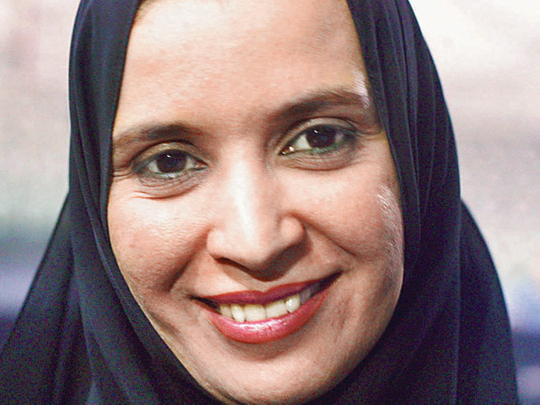
Abu Dhabi: A member of the Federal National Council has said the maternity leave law must be reconsidered to encourage more Emiratis to have children.
"The number of Emiratis is not going to grow," Dr Amal Al Qubaisi, FNC member and head of the Committee of Education, Youth Culture and Media, said.
"This is due to the fact that the mortality and birth rates in the UAE are equal, and while population increase is encouraged, it won't happen unless birth rates rise," she explained. The FNC member is calling for a complete reconsideration of the UAE law regarding pregnant women and maternity leave.
Audio: Call to revamp UAE maternity laws:
Until recently, the law in the UAE granted a pregnant woman two months' fully paid leave, two months of half salary leave, and two months' unpaid leave. In 2007, a new law emerged stating that a pregnant woman would now get 45 days paid maternity leave and allowed 18 hours per month for lactating purposes.
"When the law came out, no women's organisations were consulted; in addition, it has been modified so maternity leave is reduced. Considering that 53 per cent of the federal organisation's workforce is women, it doesn't seem right," Dr Amal said.
According to her, this reduction does not equal what is happening globally, as Unicef recommends an average four months of fully paid leave for women.
Productivity levels
"Other countries, Egypt for example, allow women three months of paid maternity leave and two years unpaid leave. Sweden permits their women 16 months of paid maternity leave, and two years of parental leave shared between the father and the mother and funded by the government. Kuwait and Bahrain also provide women with between one to two years parental leave," she added.
"Women are hesitant to get married and have babies because of the job situation in the UAE. Some companies prefer not to hire pregnant women, while others automatically exclude pregnant women from promotions. Their reasons are always fear of the woman's situation affecting the productivity level of her work and therefore negatively impacting the company," she further added.
"However, a compromise can be reached if the laws on maternity leave are revised. Women shouldn't have to face the difficult and unfair choice between a career and a child. I myself was pregnant during the elections, it did not at all affect my work and did not prevent me from winning the elections," she added.
Apart from the general increase of time of maternity leave, Dr Amal's other requests include modifications in father's leave as well. The current law regarding fathers in the UAE grants them three days off work subsequent to their child's birth. The FNC member asks for those three days to be extended to two weeks. In addition, she is requesting a new regulation; should a mother pass away during delivery, her husband should get longer paid leave.
Dr Amal's other proposals include the mother being granted longer leave than usual in the case of premature birth or the birth of a mentally/physically disabled child.
"Another reason women are hesitant to conceive is because they worry that even if they have successful careers, it will negatively impact their child. The mother will have to depend on a babysitter or a housekeeper, and this can lead to her child's upbringing lacking crucial elements like religion, principles and values as well as correct language awareness. The introduction of nurseries at work premises — which came out in a decree in 2006 but was never applied — is an uncomplicated way of resolving that problem. It will also result in reduction of the woman's 18 hours of lactation as her child will be on the same premises and it won't take as long," she added.
Humaid Al Qutami, the Minister of Education and chairman of the Federal Human Resources Authority, was supportive granting women the right to a leave of 100 unpaid days that can include her annual leave. He promised that women's organisations will be able to take part in the decision- making on such issues.
— with inputs from Mayar Raouf, Staff Reporter
Would you like to see maternity leave extended? Have you had to choose between motherhood and your career? What other issues do new mother's face?












